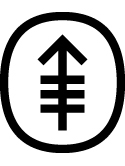A randomized controlled trial of a reduced daily dose of zidovudine in patients with the Acquired Immunodeficiency Syndrome Journal Article
| Authors: | Fischl, M. A.; Parker, C. B.; Pettinelli, C.; Wulfsohn, M.; Hirsch, M. S.; Collier, A. C.; Antoniskis, D.; Ho, M.; Richman, D. D.; Fuchs, E.; Merigan, T. C.; Reichman, R. C.; Gold, J.; Steigbigel, N.; Leoung, G. S.; Rasheed, S.; Tsiatis, A.; AIDS Clinical Trials Group |
| Contributors: | Solan, J.; Armstrong, D. |
| Article Title: | A randomized controlled trial of a reduced daily dose of zidovudine in patients with the Acquired Immunodeficiency Syndrome |
| Abstract: | The initially tested dose of zidovudine for the treatment of patients with advanced disease caused by the human immunodeficiency virus type 1 (HIV) was 1500 mg. Although this dose is effective, it is associated with substantial toxicity. To evaluate the efficacy and safety of a reduced dose, we conducted a randomized controlled trial in 524 subjects who had had a first episode of Pneumocystis carinii pneumonia. The subjects were assigned to receive zidovudine in either a dose of 250 mg taken orally every four hours (the standard-treatment group, n = 262) or a dose of 200 mg taken orally every four hours for four weeks and thereafter 100 mg taken every four hours (the low-dose group, n = 262). The median length of follow-up was 25.6 months. At 18 months the estimated survival rates were 52 percent for the standard-treatment group and 63 percent for the low-dose group (P = 0.012 by the log-rank test). At 24 months the estimated survival rates were 27 percent for the standard-treatment group and 34 percent for the lowdose group (P = 0.033). In both groups, 82 percent of the subjects had another opportunistic infection, and the length of time to that infection was similar in the two groups (P = 0.56 by the log-rank test). CD4 T-lymphocyte counts improved transiently in both groups, and serum levels of HIV antigen decreased in the subjects with antigenemia. The hemoglobin level declined to less than 5 mmol per liter (80 g per liter) in 101 subjects in the standard-treatment group and in 77 in the low-dose group (39 vs. 29 percent, P = 0.0009 by the log-rank test). The neutrophil count declined to less than 0.750×109 per liter in 134 subjects in the standard-treatment group and in 96 in the low-dose group (51 vs. 37 percent, P = 0.0001). The reduced daily dose of zidovudine used in this study was at least as effective as the standard dose and was less toxic; however, with the use of a four-week induction period with a high dose followed by low-dose treatment, severe anemia and neutropenia were common complications of treatment with zidovudine. ZIDOVUDINE (3′-azido-3′-deoxythymidine; formerly azidothymidine, or AZT) is a thymidine analogue that inhibits the replication of the human immunodeficiency virus type 1 (HIV) in vitro.1 The administration of zidovudine to patients with advanced HIV disease over a 6-to-24-month period prolongs survival, decreases the frequency and severity of opportunistic infections, improves neurologic function, transiently improves CD4 T-lymphocyte counts, and decreases the rate of HIV antigenemia.2 3 4 5 6 7 8 Despite these benefits, zidovudine therapy is frequently associated with adverse reactions, including both anemia and neutropenia.2,9 Although the serum half-life of zidovudine is one hour, the intracellular half-life of its 5′-triphosphate form approaches three hours, suggesting that... © 1990, Massachusetts Medical Society. All rights reserved. |
| Keywords: | controlled study; major clinical study; clinical trial; neutropenia; follow up; t lymphocyte; anemia; randomized controlled trial; pneumocystis pneumonia; drug toxicity; acquired immune deficiency syndrome; drug dose; human immunodeficiency virus 1; opportunistic infection; oral drug administration; zidovudine; human; priority journal; article |
| Journal Title: | New England Journal of Medicine |
| Volume: | 323 |
| Issue: | 15 |
| ISSN: | 0028-4793 |
| Publisher: | Massachusetts Medical Society |
| Date Published: | 1990-10-11 |
| Start Page: | 1009 |
| End Page: | 1014 |
| Language: | English |
| DOI: | 10.1056/nejm199010113231501 |
| PUBMED: | 1977079 |
| PROVIDER: | scopus |
| DOI/URL: | |
| Notes: | Article -- Export Date: 27 January 2020 -- Source: Scopus |
Altmetric
Citation Impact
BMJ Impact Analytics
Related MSK Work





